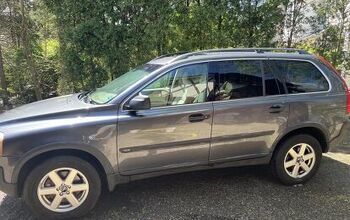Japan Inc. Saves Renesas From The Clutches Of American Banksters

A consortium of major Japanese companies, along with a government-backed turnaround fund snapped chipmaker Renesas away from what they deemed as certain doom on the hands of the American private equity fund Kohlberg Kravis Roberts (KKR). The Nikkei [sub] reports in a flash message that the consortium that includes all three major Japanese automakers has put together a $13 billion package to block a purchase by KKR.
Why do we write about chipmakers? TTAC readers may remember Renesas from our coverage of the post-tsunami fallout. It turned out that the automakers had survived relatively unscathed. The tsunami did wipe out a fab of Renesas, which supplied nearly all Japanese automakers (and many elsewhere) with specialized ECU chips. The ensuing chip famine nearly wiped out Toyota and Honda. Nissan was said to have taken a large delivery of a previous-gen chip and was relatively unaffected.
According to the Nikkei, having cornered the chip market did not translate into stellar earnings. Renesas has booked seven straight years of losses and appears that it will do the same this year.
Last month, KKR was willing to take over Renesas, but demanded that the entire board steps down and that existing lenders and shareholders come up with new money. Worried about another disruption, and possibly about the brains of their cars being in the hands of unpredictable Americans, the Japanese decided to act. The consortium also includes parts makers Denso, Keihin, and more. Germany’s Bosch may get invited.
Some of the microcontrollers made by Renesas are deemed as hard to replace with those from other manufacturers.

Bertel Schmitt comes back to journalism after taking a 35 year break in advertising and marketing. He ran and owned advertising agencies in Duesseldorf, Germany, and New York City. Volkswagen A.G. was Bertel's most important corporate account. Schmitt's advertising and marketing career touched many corners of the industry with a special focus on automotive products and services. Since 2004, he lives in Japan and China with his wife <a href="http://www.tomokoandbertel.com"> Tomoko </a>. Bertel Schmitt is a founding board member of the <a href="http://www.offshoresuperseries.com"> Offshore Super Series </a>, an American offshore powerboat racing organization. He is co-owner of the racing team Typhoon.
More by Bertel Schmitt


































Comments
Join the conversation
They merged with NEC in 2010, so what's the big deal. and did you say Japanese govt. money? I'm shocked totally shocked!
Having worked on products which had their auto-industry-specific chips in them for which there was no direct replacement without a complete redesign (and that's the easy part - the subsequent test/validation/vendor requalification PPAP efforts are the real time and money sinks), I must concur with their fears.
...A consortium of major Japanese companies, along with a government-backed turnaround fund... Oh the irony. Lets see that would be called a...bailout. Of a company that has lost money seven years in a row because its customers (if it has "cornered" the market) has squeezed its profits into oblivion and has clearly been poorly run. When you're the only game in town and what you make is in demand by huge multi-national corporations who can't make literally one cent without you - you shouldn't be going broke. But that's OK, the Japanese government bailing out critical infrastructure that was run into the ground by incompetence is OK.
Everyone seems to be missing the probable reason for this company's inability to make any money, and that is the fact that it is HQ'd in California, where costs are extremely high. Let's say the company signed contracts for pricing with various auto companies and then saw the people's republik of California continually raise taxes and social costs to the point where it was impossible to make a dime. Certainly not beyond the realm of possibility, is it? Any bets that the company HQ and engineering studios are moved out of California? (But probably not to Japan, which also has its own issues with Yen exchange rates and costs). Perhaps Oregon, or Texas?